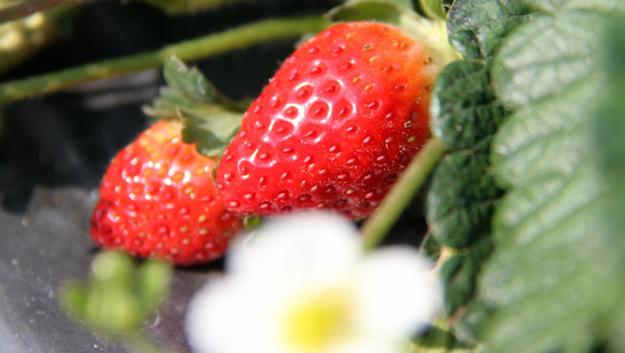CAN NC’S STRAWBERRY INDUSTRY PROTECT SOIL HEALTH?

Photo: huangjiahui/creative commons
When local farming pioneer John Vollmer passed away recently, he was remembered not just for championing organic agriculture. Having been an agricultural chemical seller for many years, Vollmer was at least as influential in encouraging conventional growers to reconsider the role of soil health on their farms. It seems likely that Vollmer would approve of a study being conducted by NC State University researchers Amanda McWhirt, Michelle Schroeder-Moreno, Gina Fernandez, Hannah Burrack and Yasmin Cardoza. The study explores ways that all NC strawberry growers can help maintain soil health, reduce chemical use, and become more economically sustainable too. The main goal is to replace routine annual fumigation of the soil—which kills both pests and beneficial organisms indiscriminately—with a more holistic regime that includes compost and cover crops.
Here’s how Southeast Farm Press reports on the strawberry trials:
Last summer, McWhirt and her colleagues planted a research strawberry field in Goldsboro, N.C., with pearl millet and cowpea after applying compost. These cover crops provide erosion control and a break in the crop cycle. At the end of the summer, the researchers mowed these crops into the soil to provide nitrogen and organic matter, which can help keep the soil healthy.
“This is a pretty new technique for use in strawberries,” McWhirt says. “If the test fields this spring have increased yields, more plant growth and improved soil health over our control group – which is planted in strawberries under ‘normal’ conditions without the compost and cover crops – we’ll know that we’re on to something important.”
- Categories:


